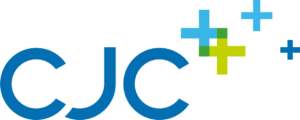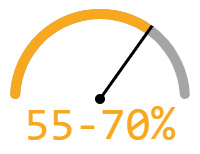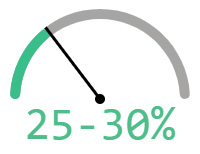Get notified of the latest news, insights, and upcoming industry events.
Enhance Compliance and Efficiency
This is the first of a four-part series on DRDM's core suite, a digital contracts platform that simplifies market data management by automating compliance and enhancing intelligence. Discover how DRDM's advanced digital contracts make market data management more efficient and transparent, reducing compliance risks. Learn how DRDM’s digital contracts, powered by Distributed Ledger Technology (DLT), streamline workflows and unlock new revenue opportunities for the financial sector.
This article covers:
Managing market data efficiently is a constant challenge for financial firms, including handling contracts, ensuring usage compliance, prompt operational workflows and revenue optimisation. The consequences of gaps in market data management can be hard-hitting, reportedly $3.9 million per audit per data source1 and mostly due to unintentional breaches2, resulting in annual revenue loss. It is no wonder that 84% of professionals are facing pressure to simplify agreements3, streamline processes, ensure transparency, and reduce risk. Enter DRDM.
 Following the official launch of DRDM (Digital Rights for Data Management), this is the first of a four-part weekly series exploring the DRDM’s core suites – a next-generation digital contracts platform designed to bring automation, compliance, and intelligence to market data operations.
Following the official launch of DRDM (Digital Rights for Data Management), this is the first of a four-part weekly series exploring the DRDM’s core suites – a next-generation digital contracts platform designed to bring automation, compliance, and intelligence to market data operations.
- Digital Contracts – Replacing static agreements with automated, code-based contracts.
- Automated Declarations – Ensuring compliance with real-time data usage tracking.
- Workflow Efficiencies – Optimising operations through intelligent automation.
- Intelligent Sales – Leveraging AI to uncover revenue opportunities.
In this post, we examine digital contracts, how DRDM transforms the management of market data agreements, and the benefits for its users.
Contracts: Digitised vs. Digital
Market data contracts are essential for data publishers (Exchanges, inter-dealer brokers, data aggregators, or redistributors) and subscribers (investment banks, asset management funds, etc.), despite widely acknowledged challenges like “poor culture of contractual provisions” and fragmented supervision4. Many organisations still rely on digitised contracts – static PDFs or scanned, paper-based documents without automation or intelligence. This is a fundamental difference between “digitised contracts” and “digital contracts”:
|
Digitised Contracts |
DRDM’s Digital Contracts |
|
| What Are They? |
Paper-based agreements converted into digital formats (e.g. scanned PDFs). |
Contracts created natively within the DRDM platform, designed for automation and intelligent management. |
| Functionality |
Static—no automation, tracking, or smart features. |
Interactive agreements with digital signatures, automated workflows, and content-aware metadata. |
| Usage |
Primarily for archiving, sharing, or simple record-keeping. |
Streamlines contract negotiation, execution, and compliance tracking in real-time. |
Ultimately, a digitised contract (or electronic contract/ e-contract) is merely a scanned or electronically created document contract modelled, specified, executed, and deployed by a software system5. However, digital contracts aren’t just electronic, they include digital features, like smart-code-based interactive agreements that enforce terms automatically and integrate with financial systems wherever the data goes, as highlighted in a recent video [01:45].
|
Organisations do not have full visibility of contractual obligations. |
Contract professionals feel it’s a challenge to find specific documents. |
Firms are not confident in tracking and managing their contracts. |
Companies cannot find 10% or more of their contracts. |
SOURCE: PROCUREMENT TACTICS (2025)
Game-Changing Difference
Unlike digitised contracts, digital contracts are code-based and stored in a centralised location where they are organised and structured living assets. Powered by Distributed Ledger Technology (DLT), digital contracts are a global standard, frequently recognised as the most secure, transparent, and efficient way to store, access, control, and track contractual data6. In industries where trust, compliance, and traceability are crucial, DLT-based contracts provide a secure and transparent solution. These digital contracts are tamper-proof and easily verified, reducing inefficiencies and the risk of fraud.
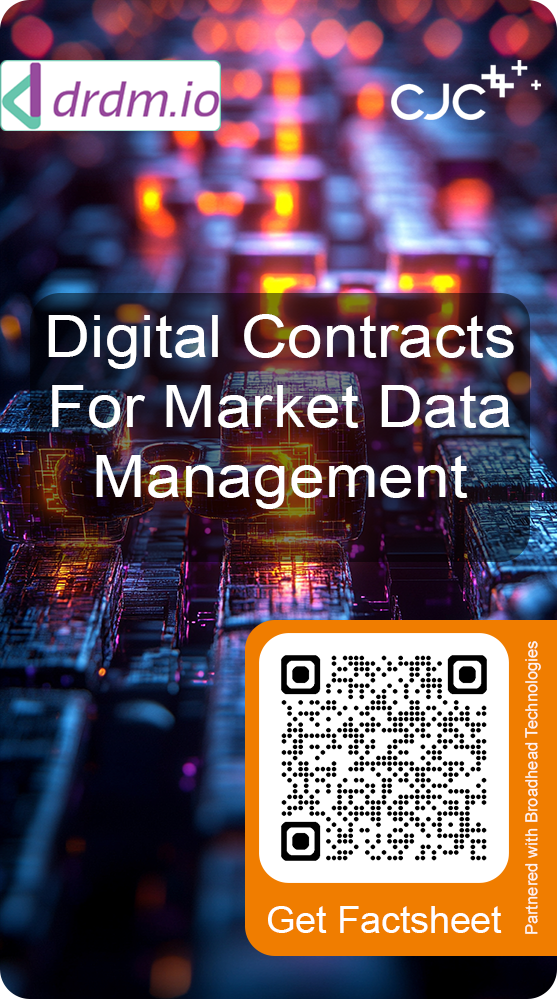 DLT-based digital contracts are already widely used in industries that impact people’s daily lives, ensuring trust, safety, and accountability in critical supply chains:
DLT-based digital contracts are already widely used in industries that impact people’s daily lives, ensuring trust, safety, and accountability in critical supply chains:
- Pharmaceuticals – Drug development, distribution, and safety have long relied on DLT-powered traceability7. DLT-based digital contracts ensure regulatory compliance, prevent theft, and, most importantly, improve recall efficiency—ensuring that life-saving drugs meet strict safety standards.
- Food & Agriculture – Organisations like IBM Food Trust8 use DLT to track and verify the entire lifecycle of food products, from farm to table. With blockchain-powered contracts, every step in the supply chain is transparent, auditable, and secure, ensuring that consumers can trust where their food comes from. This continually saves lives, reducing the time it takes to trace the source of contamination from days to seconds9.
Solving Market Data Challenges
In addition to a complex market climate, like rising market data prices10, traditional contract management relies on static agreements that require manual oversight. This leads to multiple challenges for market data managers11 like inefficiencies, increased compliance risks and revenue loss. Lacking automation, firms struggle to track contract expirations, enforce terms, and ensure data usage aligns with agreements.
Leveraging digital contract management solutions has been shown to increase compliance by 55%12 and DRDM solves market data challenges by enabling:
- Instant Search and retrieval of expiring contracts
- Automated contract updates and bulk changes, ensuring consistency
- Track usage to prevent discrepancies and enforce licensing terms.
- Automation of periodic price adjustments, reducing manual intervention to ensure revenue growth.
- Track sent contracts in real-time, with automated reminders for signatures.
- Seamless online negotiations, reducing time-to-execution.
- Maintain a full audit trail, ensuring contracts are compliant and enforceable.
- Link contracts with Automated Declarations, ensuring market data usage aligns with contractual rights.
|
Organisations lack effective contract management systems. |
Increase in compliance by leveraging digital contract management solutions |
Reduction in administrative costs and an 80% faster average cycle time |
SOURCE: PROCUREMENT TACTICS (2025)
Increasing Efficiency and Lowering Costs
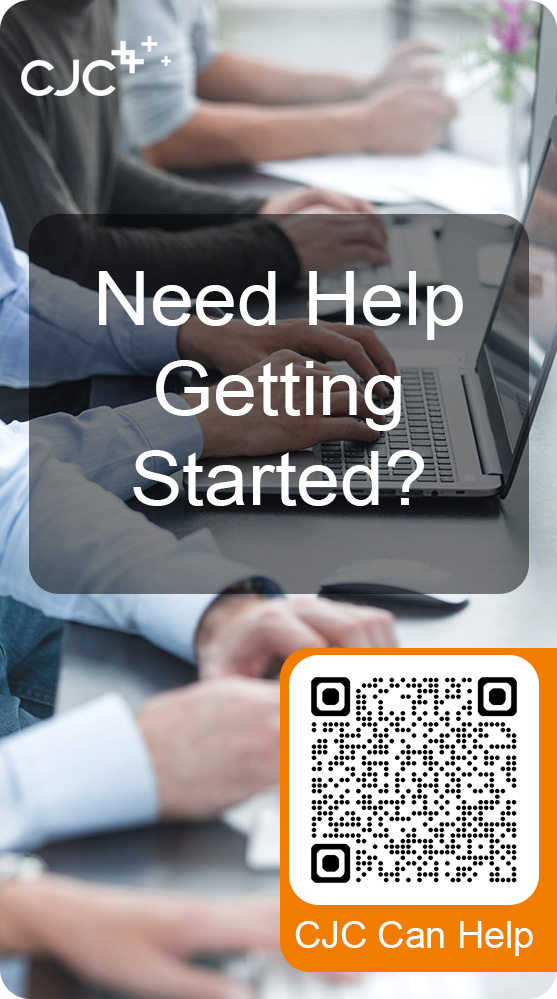 Without structured and automated digital contract systems organisations waste valuable time and resources on manual contract reviews, compliance checks, and dispute resolution. DRDM’s Digital Contract Network (DCN) eliminates these inefficiencies by delivering:
Without structured and automated digital contract systems organisations waste valuable time and resources on manual contract reviews, compliance checks, and dispute resolution. DRDM’s Digital Contract Network (DCN) eliminates these inefficiencies by delivering:
- Real-time tracking through the immutable DLT-powered DCN.
- Automated compliance and visibility to ensure contracts are aligned with regulations like MiFIR.
- Seamless contract enforcement and reporting through permissioning systems like EMRS, DACS, etc.
- AI-powered contract searches to proactively manage market intelligence, identifying the overutilisation of digital rights.
- Contract integration with workflow automation to reduce spending on manual processes like onboarding, KYC, and entitlement tracking.
- Eliminate resource-heavy contract administration instantly accessible agreements via DRDM’s user-friendly front-end software.
Firms must move beyond outdated, static agreements and embrace digitally intelligent contracts that ensure compliance, automation, and security. DRDM’s digital contracts transform contract management into a dynamic and proactive process that reduces incompliant risks and inefficiencies while ensuring every agreement is enforceable, verifiable, and future-proofed.
By leveraging DLT-powered digital contracts, financial organisations that depend on traceability and transparency can confidently manage agreements with unparalleled efficiency and security. DRDM is redefining how market data agreements are managed—offering a smarter, more automated, and regulation-ready future.
Discover DRDM
Digital Rights for Data Management (DRDM) is a joint initiative between CJC and Broadhead Technologies, which combines CJC’s deep market data management expertise with Broadhead Technologies’ innovative digital rights and automation. Together, we have developed DRDM as a next-generation platform that delivers automation, transparency, and compliance to contract management at financial institutions. DRDM ensures secure and efficient digital rights management at scale.
DRDM is a comprehensive platform designed to safeguard digital content's rights, ownership and usage. It offers unmatched security, automation, and transparency for organisations managing high-value data assets.
Built on decades of experience in the trillion-dollar Capital Markets—spanning investment banking, stock exchanges, and major financial institutions—DRDM delivers a next-generation approach to digital asset protection and market data rights management. DRDM is differentiated by its content-aware Digital Contracts, which empower organisations to maintain end-to-end ownership and control over their data assets.
Key Features
|
Industry ApplicationsDRDM is invaluable across industries that demand authenticity, security, and regulatory compliance, which ensures organisations can verify, enforce, and protect digital rights at scale. Contact Us For More Information:Email: marketing@cjcit.com |
Get In Touch
Get in touch with our experts to learn how we can help you optimise
your market data ecosystem!
